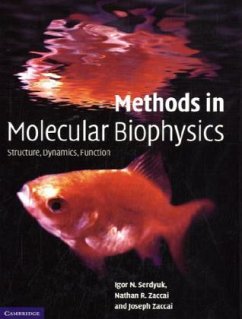Our knowledge of biological macromolecules and their interactions is based on the application of physical methods, ranging from classical thermodynamics to recently developed techniques for the detection and manipulation of single molecules. These methods, which include mass spectrometry, hydrodynamics, microscopy, diffraction and crystallography, electron microscopy, molecular dynamics simulations, and nuclear magnetic resonance, are complementary; each has its specific advantages and limitations. Organised by method, this textbook provides descriptions and examples of applications for the key physical methods in modern biology. It is an invaluable resource for undergraduate and graduate students of molecular biophysics in science and medical schools, as well as research scientists looking for an introduction to techniques beyond their specialty. As appropriate for this interdisciplinary field, the book includes short asides to explain physics aspects to biologists and biology aspects to physicists. Our knowledge of biological macromolecules is based on the application of a variety of physical methods. This invaluable resource for undergraduate and graduate students of molecular biophysics provides an understanding of these methods, their applications, advantages, and limitations, and is essential to all those working in this interdisciplinary field.
Bitte wählen Sie Ihr Anliegen aus.
Rechnungen
Retourenschein anfordern
Bestellstatus
Storno

